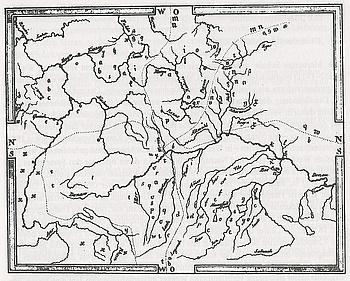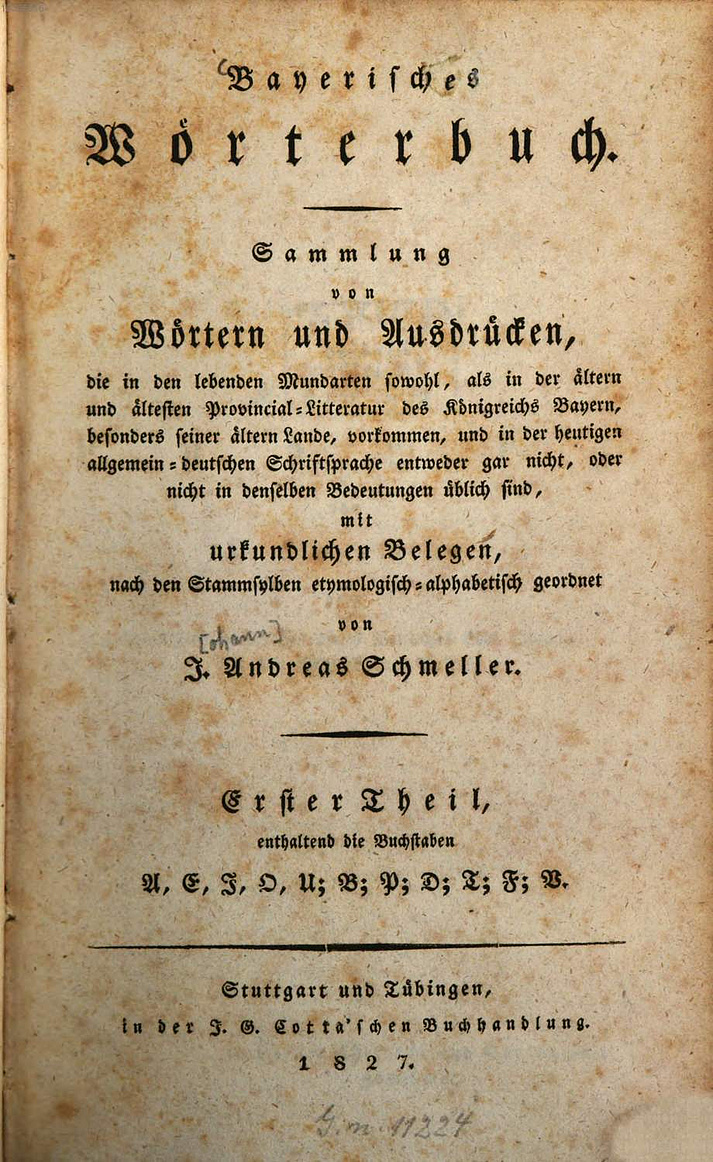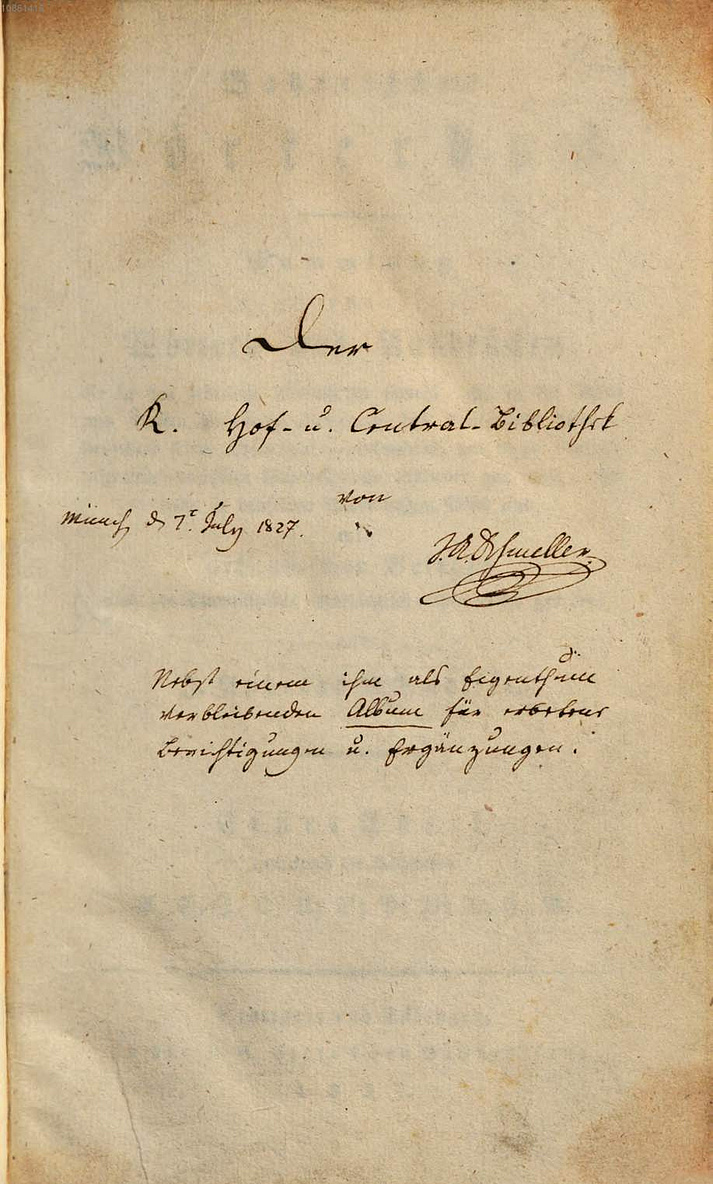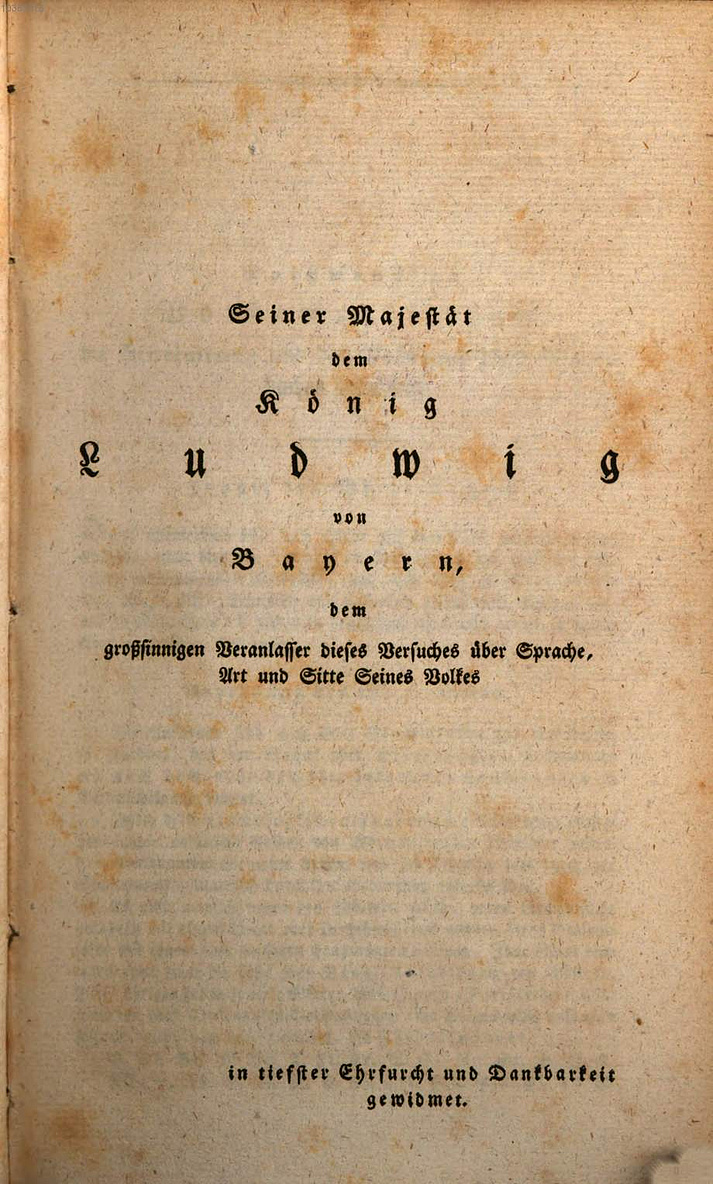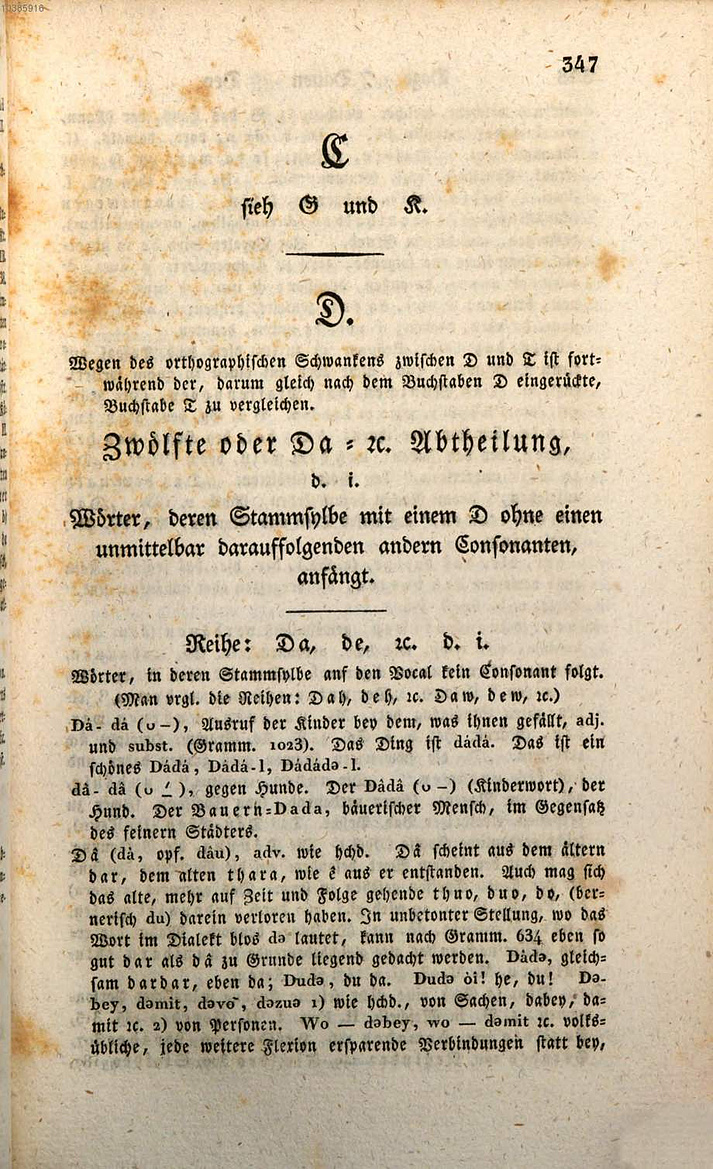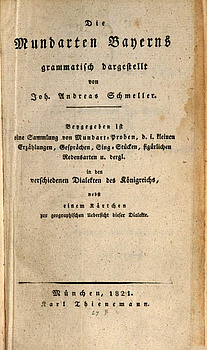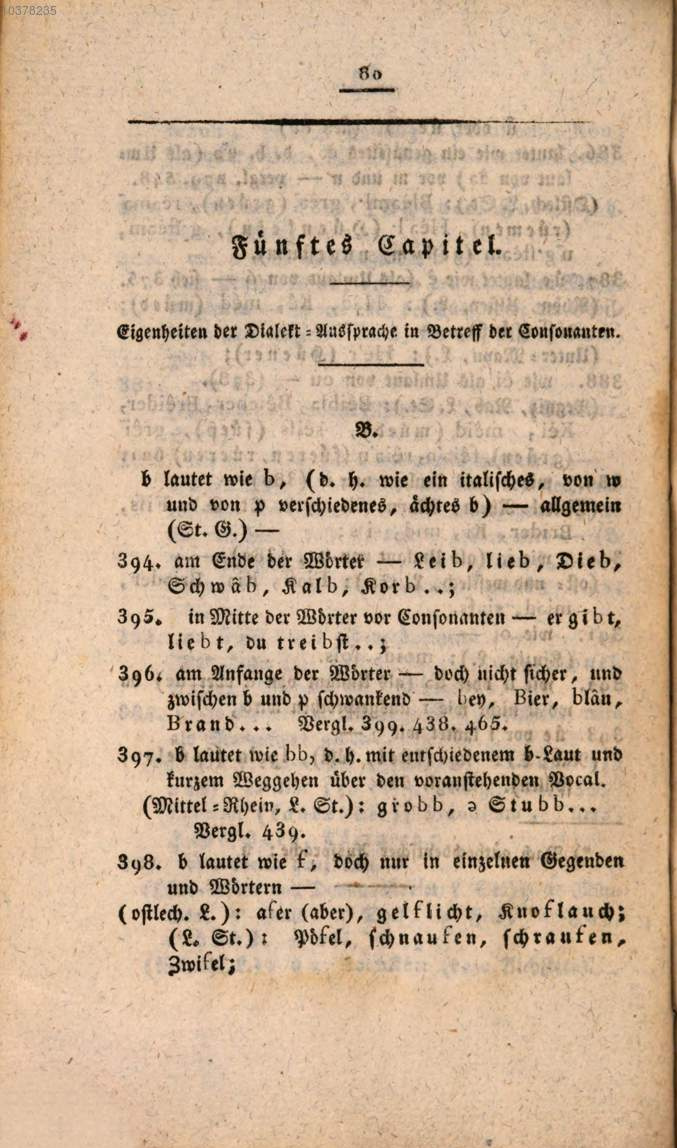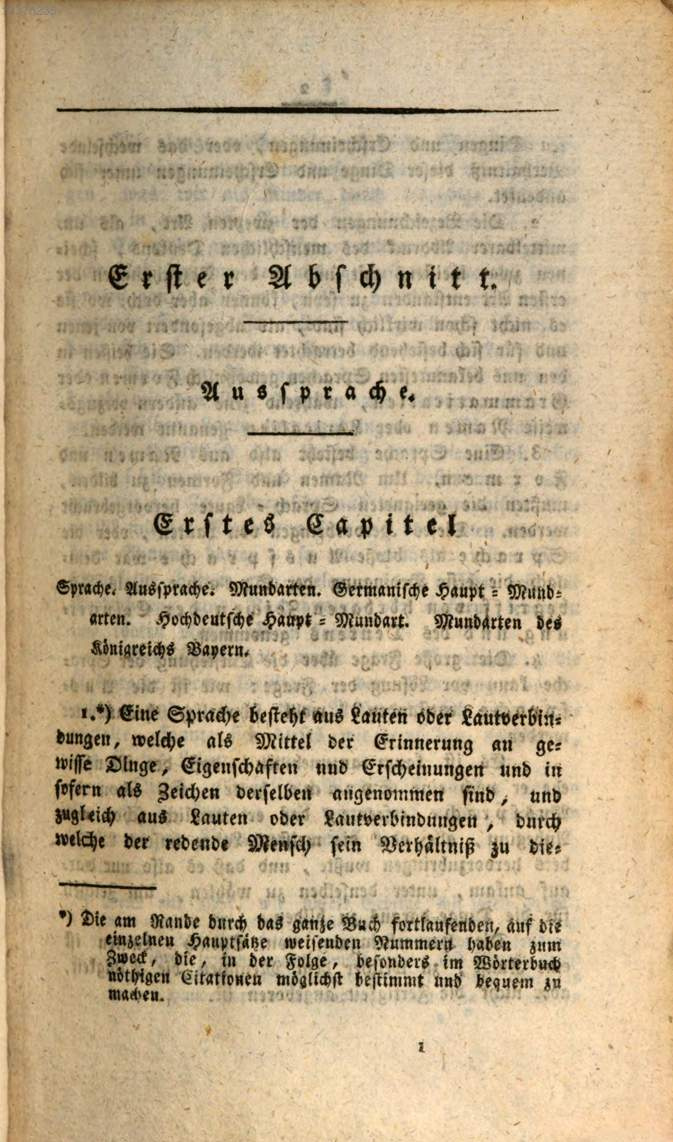History of the project
When Schmeller returned to Bavaria from his long absence in Spain and Switzerland in 1814 to take up arms against Napoleon for his mother country, he made the acquaintance of the librarian Wilhelm Scherer, who urged him to “start work on a Bavarian Idioticon”, i.e. on a list of special dialect words (Diaries vol 1, p. 372). Scherer also championed the project within the Bavarian Academy of Sciences.
Only two weeks after his meeting with Docen, Schmeller presented a convincing concept „Sprache der Baiern“ (“Language of the Bavarians”). In consequence, he was transferred – as a serving officer retaining his salary – to the Academy, at first for six months. For two years, Crown Prince Ludwig even incremented his salary.
First research project under the auspices of the Academy
The way the project was organised anticipated the present-day research funding by the academies. For philological studies in Germany, it was new, “for here, for the first time, an institution with expertise appears as a mediator between the dialectologist and his funders: the Bavarian Academy of Sciences … it organised Schmeller’s transfer from military service … an academic commission, which can be seen as the first dictionary commission, receives biannual reports.” (Bremer/Hoffmann 205)
In spite of repeated problems with the funding and the prolongation of his transfer to the Academy, Schmeller in 1821 published his dialect grammar „Die Mundarten Bayerns grammatisch dargestellt” as a preliminary to the dictionary. The four parts of the dictionary were published between 1827 and 1837 in Cotta’s publishing house.
Johann Andreas Schmeller: Bayerisches Wörterbuch, 1827 - title page, Ex Libris, dedication to King Ludwig I, page 368
Johann Andreas Schmeller: Die Mundarten Bayerns grammatisch dargestellt, 1821 - dedication to King Ludwig I, pages 106 und 27
The foundation of the discipline of Dialectology
With these two works, Schmeller founded the scientific discipline of dialectology. The dictionary became a template for a whole series of dictionaries that followed.
Typical for Schmeller were the care he took in formulating his semantic descriptions and the synopsis of contemporary and historical word usage with ample quotations and precise source references. Ingo Reiffenstein in a critical appreciation on the occasion of Schmeller’s 200th birthday wrote (p. 23): “Schmeller created this type of dictionary, which was new and without precedent.” (see vol. 1 and vol. 2).

